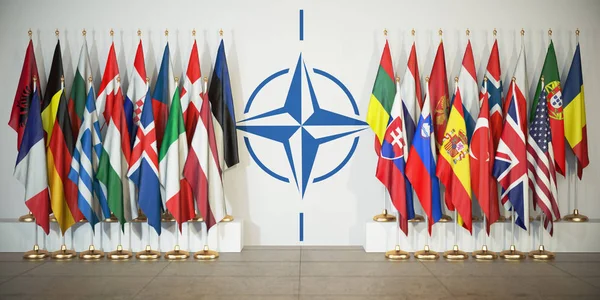The North Atlantic Treaty Organization (NATO) was established on April 4, 1949, with the signing of the North Atlantic Treaty, commonly known as the Washington Treaty. Its formation was a strategic response to the geopolitical tensions of the early Cold War era, aiming to provide collective security against the expansionist policies of the Soviet Union. The founding members—Belgium, Canada, Denmark, France, Iceland, Italy, Luxembourg, the Netherlands, Norway, Portugal, the United Kingdom, and the United States—committed to mutual defence, ensuring that an armed attack against one would be considered an attack against all.
Throughout the Cold War, NATO’s primary role was to deter Soviet aggression in Europe. The alliance maintained a robust military posture, with the United States playing a leading role by stationing troops and nuclear weapons across European member states. This period saw the establishment of a counterbalancing force, the Warsaw Pact, comprising the Soviet Union and its satellite states, which further entrenched the East-West divide.
The dissolution of the Soviet Union in 1991 prompted NATO to redefine its purpose in a rapidly changing global landscape. The alliance shifted focus towards crisis management, cooperative security, and the promotion of democratic values. Notably, NATO engaged in military interventions in the Balkans during the 1990s, aiming to halt ethnic conflicts and human rights violations. The 1999 NATO-led bombing campaign in Yugoslavia, intended to stop the persecution of ethnic Albanians in Kosovo, remains a subject of debate and reflection. As recently as March 2025, protests in Belgrade highlighted ongoing grievances related to this intervention, particularly concerning redevelopment projects on sites damaged during the bombing.
The post-Cold War era also saw NATO’s enlargement, with former Eastern Bloc countries joining the alliance. This expansion aimed to promote stability and integration across Europe but has been a point of contention with Russia, which views it as a strategic encroachment.
The United States has historically been a cornerstone of NATO, providing significant military and financial support. However, the U.S. stance towards the alliance has experienced fluctuations, particularly during Donald Trump’s presidency. Trump’s tenure was marked by criticism of NATO members for not meeting defense spending targets and questioning the utility of longstanding alliances. In a 2024 campaign rally, Trump recounted telling a NATO ally that he would not protect them if they were “delinquent” in their financial commitments, suggesting he would “encourage” Russia to act as it wished in such scenarios.
Such statements have raised concerns about the reliability of U.S. commitments under NATO’s collective defence clause, Article 5. NATO Secretary-General Jens Stoltenberg responded, emphasizing that any suggestion of allies not defending each other undermines collective security and endangers both American and European forces.
The evolving U.S. posture has prompted European nations to reassess their security strategies. Discussions have intensified around the formation of a European “security council,” informally known as the E5, comprising the UK, France, Germany, Poland, and Italy. This initiative seeks to bolster Europe’s defense capabilities independently of U.S. support, reflecting a desire for strategic autonomy in light of perceived American unpredictability.
Furthermore, apprehensions about the U.S.’s commitment to NATO have led some countries to contemplate developing their own nuclear deterrents. Nations such as Germany, Poland, South Korea, and Japan are reportedly considering independent nuclear programs amid doubts over the stability of U.S. security guarantees.
As of March 2025, NATO stands at a crossroads. The alliance continues to adapt to new security challenges, including cyber threats, terrorism, and the strategic ambitions of rival powers. However, internal dynamics, particularly the shifting attitudes of key members like the United States, pose significant challenges. The debate over burden-sharing and the reliability of mutual defence commitments has intensified, leading to strategic recalibration among European allies.
In conclusion, NATO’s journey from a Cold War deterrent to a multifaceted security alliance underscores its resilience and adaptability. Yet, the current geopolitical climate, marked by evolving U.S. foreign policy under leaders like Donald Trump, necessitates a reevaluation of transatlantic relationships. European nations are increasingly compelled to consider greater self-reliance in defence, reflecting both the uncertainties of American commitment and the imperative to address emerging global threats collectively.
Editorial newshub-finance



Recent Comments